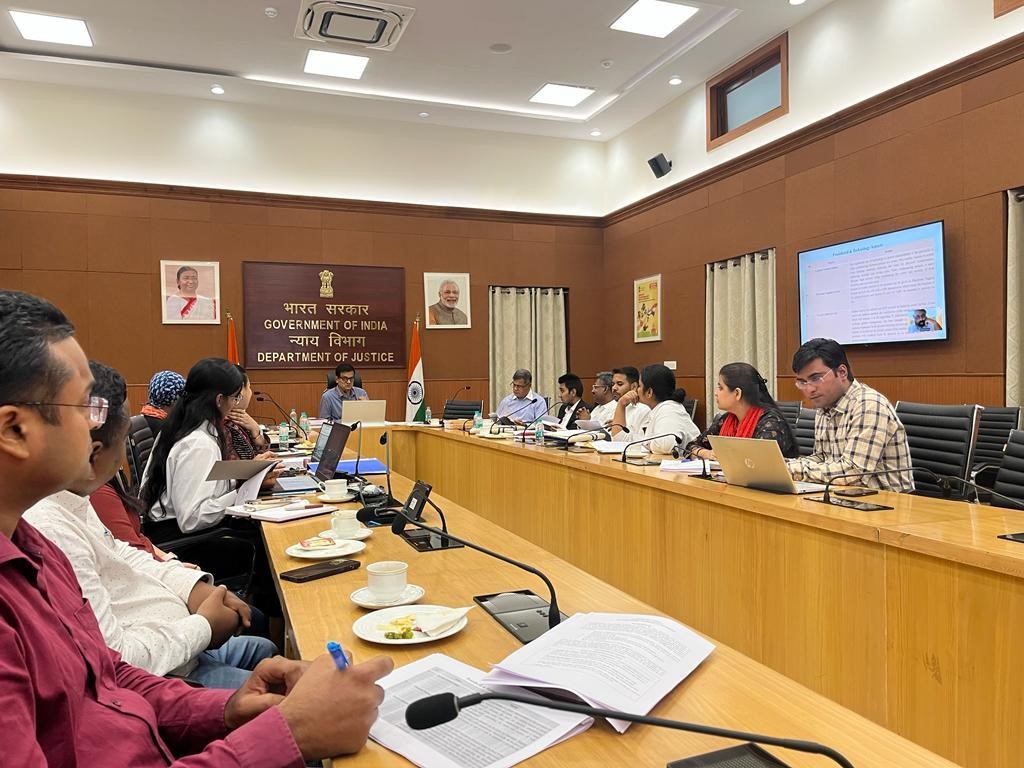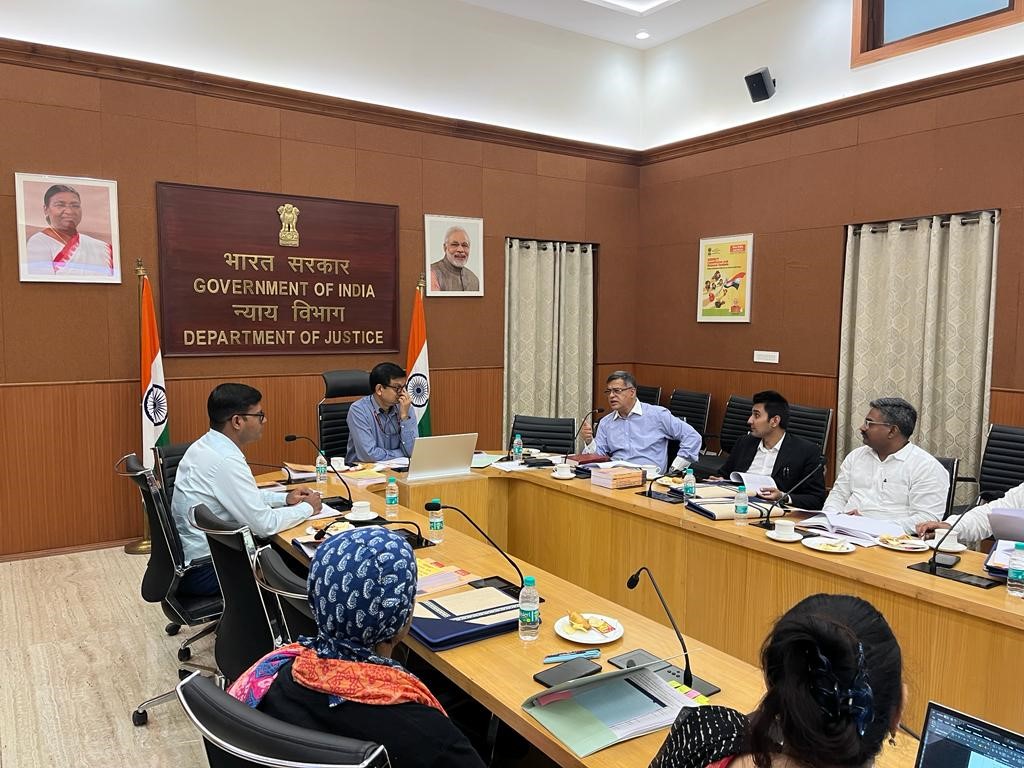

Independent Thought v. Union of India Judgment
The landmark judgment in Independent Thought v. Union of India marks a significant milestone in the fight for children's rights in India. This case, led by Independent Thought, a national human rights organization, challenged the exception to marital rape under Section 375 of the Indian Penal Code, which allowed sexual intercourse with a wife aged 15 to 18 years as legal. The Supreme Court of India, in a historic ruling, struck down this exception, affirming that sexual intercourse with a minor wife constitutes rape, regardless of marital status.
The Case: A Battle for Child Rights
Independent Thought initiated this legal battle to protect the fundamental rights of girl children, particularly in the context of child marriage. The organization argued that the exception in Section 375 was in direct violation of the Protection of Children from Sexual Offences (POCSO) Act, 2012, and the constitutional rights of minor girls, including the right to life, dignity, and personal liberty under Articles 14, 15, and 21 of the Indian Constitution.
The Supreme Court's ruling recognized the inconsistency between the laws protecting children and the outdated exception in the penal code. By declaring that sexual intercourse with a wife below 18 years of age is indeed rape, the judgment reinforced the notion that the protection of children's rights cannot be compromised, even within the confines of marriage.
Advocacy Initiatives by Independent Thought
The victory in the Independent Thought v. Union of India case is a testament to the organization’s unwavering commitment to child rights advocacy. Beyond the courtroom, Independent Thought has been at the forefront of several initiatives aimed at creating a legal and social environment that upholds the rights and dignity of children.
- Legal Reform and Policy Advocacy: Independent Thought actively engages with lawmakers, legal experts, and civil society to advocate for child-friendly laws and policies. The organization’s efforts have contributed to significant legal reforms, including the strengthening of child protection laws and the promotion of gender equality in legal statutes.
- Mission 2029: Ending Child Marriage (CACM): One of the cornerstone initiatives of Independent Thought is Mission 2029, a comprehensive campaign aimed at eradicating child marriage in India by the year 2029. Through this campaign, Independent Thought is working tirelessly to change societal norms and legal frameworks that allow child marriage to persist. The campaign focuses on a multi-pronged approach, including community education, legal intervention, and policy advocacy, to ensure that every girl child is free from the threat of early marriage and can pursue education and personal development.
- Ongoing PIL: Challenging the Constitutionality of Section 198(6) Cr.PC: Independent Thought is also at the forefront of challenging discriminatory legal provisions that hinder the protection of children. The organization has filed a Public Interest Litigation (PIL) in the Hon’ble High Court of Delhi, challenging the constitutionality of Section 198(6) of the Code of Criminal Procedure (Cr.PC). This provision restricts "all courts" from taking cognizance of marital rape within child marriages if the complaint is made more than one year after the incident. Independent Thought argues that this limitation is unjust and unconstitutional, as it denies survivors of child marriage their right to seek justice for crimes committed against them, particularly in cases of marital rape. The PIL seeks to remove this arbitrary time restriction, thereby ensuring that all survivors have the opportunity to pursue legal action, regardless of when they come forward.
- Awareness and Education: Understanding that legal change must be accompanied by social change, Independent Thought conducts extensive awareness campaigns targeting communities, educators, and law enforcement agencies. These initiatives aim to educate the public about the rights of children, the importance of legal protection, and the harmful impacts of practices like child marriage.
- Judicial Intervention and Support: The organization provides legal assistance and technical support in cases involving child rights violations. By working closely with lawyers, law students, and human rights activists, Independent Thought ensures that children have access to justice and that their voices are heard in legal proceedings.
- Collaboration and Partnership: Independent Thought collaborates with national and international organizations, including the United Nations and various NGOs, to amplify the impact of its advocacy work. These partnerships help in mobilizing resources, sharing knowledge, and driving collective action towards a common goal of protecting children's rights.
Continuing the Fight for Children's Rights
The Independent Thought v. Union of India judgment is not just a legal victory but a significant step towards ensuring that the rights of children are respected and protected in all spheres of life. Independent Thought remains dedicated to advocating for the rights of the most vulnerable, continuing its work towards a society where every child can grow up free from fear, with dignity and respect.
Through ongoing advocacy, education, and legal intervention—including the ambitious Mission 2029 to end child marriage and the crucial challenge to Section 198(6) Cr.PC—Independent Thought is committed to making this vision a reality, ensuring that every child in India is afforded the protection and respect they deserve.
Legal Developments: Challenging Section 198(6) CrPC in the Delhi High Court
Independent Thought has been a pioneer in advocating for the rights of children, particularly in the context of child marriage and sexual offences against minors. Continuing its legacy of legal activism, Independent Thought has filed a significant petition in the Hon’ble High Court of Delhi, challenging the constitutionality of Section 198(6) of the Code of Criminal Procedure (CrPC). This provision currently restricts courts from taking cognizance of marital rape within child marriages if the complaint is made more than one year after the incident. The petition seeks to harmonize this provision with the protections provided under the Protection of Children from Sexual Offences (POCSO) Act, 2012.
The Petition: Addressing Inconsistencies in the Law
In the petition filed by Independent Thought, a declaration has been sought to declare Section 198(6) of the CrPC as unconstitutional and ultra vires to the extent that it is inconsistent with the provisions of the POCSO Act, 2012. The petition argues that the restrictions imposed by Section 198(6) CrPC, which limit the time frame for reporting marital rape within child marriages, are incompatible with the mandatory reporting requirements under the POCSO Act.
The POCSO Act, which is a special law enacted to address the heinous crimes of sexual abuse and exploitation of children, mandates the reporting of such offences without delay. The petition contends that this mandatory reporting provision under Section 19, read with Section 21 of the POCSO Act, should take precedence over the restrictive time frame imposed by Section 198(6) CrPC.
Court Ruling: POCSO Act Overrides CrPC Restrictions
A division bench of the Delhi High Court, comprising Justices Manmohan and Saurabh Banerjee, has held that the mandatory reporting provisions of the POCSO Act shall override the restrictions imposed under Section 198(1) read with Section 198(3) of the CrPC. The Court emphasized that the POCSO Act, as a special law, takes precedence over general laws like the CrPC when there are inconsistencies between the two. This ruling reinforces the principle that in cases involving child victims of sexual offences, the protections offered by the POCSO Act cannot be diluted by conflicting provisions in general criminal laws.
The Court also acknowledged that before the enactment of the POCSO Act in 2012, some sexual offences against children were prosecuted under the Indian Penal Code (IPC). However, with the advent of the POCSO Act, which comprehensively addresses child sexual abuse, the distinctions made by general laws like the IPC and CrPC must yield to the more specific and protective provisions of the POCSO Act.
Broader Implications: Expanding the Scope of Legal Protection
In addition to challenging Section 198(6) CrPC, the petition filed by Independent Thought also seeks a broader interpretation of the term ‘person’ under Section 198(3) CrPC. The petition requests the Court to include organizations like Childline (1098), Child Welfare Committees, and other agencies specified under the Juvenile Justice (Care and Protection of Children) Act, 2015, as entities authorized to file complaints on behalf of minors. This expansion would empower these organizations to act more effectively in protecting the rights of children who are victims of marital rape and other sexual offences.
Furthermore, the petition advocates for an amendment to Section 198(6) CrPC that would allow minor victims of marital rape to file complaints until the age of 20 years. This proposed amendment aligns with the provisions of Section 3(3) of the Prohibition of Child Marriage Act, 2006, which allows a child to seek annulment of a marriage until two years after reaching the age of majority.
The Path Forward
The Delhi High Court's ruling in favor of Independent Thought's petition represents a significant step toward strengthening the legal protections for child victims of sexual offences. By ensuring that the POCSO Act’s provisions take precedence over conflicting sections of the CrPC, the Court has reaffirmed the importance of safeguarding children’s rights in the legal system. Independent Thought continues to lead the fight for justice and protection for children, advocating for legal reforms that reflect the evolving understanding of children's rights and the need for robust legal frameworks to protect them from harm.
Continuing the Fight for Children's Rights
The Independent Thought v. Union of India judgment is not just a legal victory but a significant step towards ensuring that the rights of children are respected and protected in all spheres of life. Independent Thought remains dedicated to advocating for the rights of the most vulnerable, continuing its work towards a society where every child can grow up free from fear, with dignity and respect.
Through ongoing advocacy, education, and legal intervention—including the ambitious Mission 2029 to end child marriage and the crucial challenge to Section 198(6) CrPC—Independent Thought is committed to making this vision a reality, ensuring that every child in India is afforded the protection and respect they deserve.

